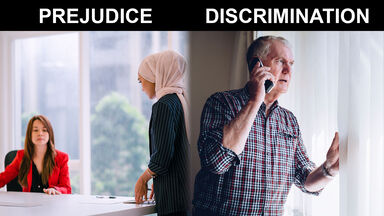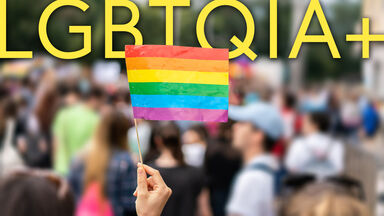Gay Definition
The name of the letter ⟨—⟩, which stands for the sound IPA: /ɡ/, in Pitman shorthand.
An English surname, originally a nickname for a cheerful or lively person.
Other Word Forms of Gay
Noun
Adjective
Origin of Gay
-
From Middle English gay, from Old French gai (“joyful, laughing, merry”), probably a borrowing of Old Provençal gai (“impetuous, lively”), from Gothic (gaheis, “impetuous”), merging with earlier Old French jai ("merry"; see jay), from Frankish *gāhi; both from Proto-Germanic *ganhuz, *ganhwaz (“sudden”), from Proto-Indo-European *ǵʰengʰ- (“to stride, step”), from *ǵʰēy- (“to go”). Cognate with Dutch gauw (“fast, quickly”), Westphalian Low German gau, gai (“fast, quick”), German jäh (“abrupt, sudden”). For more information, see the entries gang and go.
From Wiktionary
The sense of homosexual (first recorded no later than 1947) was shortened from earlier gay cat ‘homosexual boy’ in underworld and prison slang, itself first attested about 1935, but used earlier for a young tramp or hobo attached to an older one.
From Wiktionary
-
Anatoly Liberman, following Frank Chance and Harri Meier, believes Old French gai was instead a native development from Latin vagus (“wandering, inconstant, flighty”), with *[w] > [g] as in French gaine.
From Wiktionary
-
From Pitman kay, which it is derived from graphically, and the sound it represents. The traditional name gee was considered inappropriate, as the Pitman letter never has the sound of that name.
From Wiktionary
The reason behind the recent pejorative usage is not documented, though it is primarily speculated to be due to hostility towards homosexuality.
From Wiktionary
Middle English gai lighthearted, brightly colored from Old French possibly of Germanic origin
From American Heritage Dictionary of the English Language, 5th Edition
The sense of ‘upright’, used in reference to a dog’s tail, probably derives from the ‘happy’ sense of the word.
From Wiktionary
Related Articles
Find Similar Words
Find similar words to gay using the buttons below.





